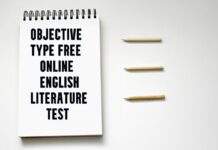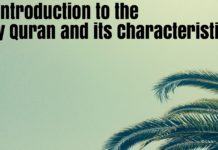Jane Austen use as the basic and true feature of irony is concerned, it lies in a contrast between reality and appearance. Irony may be of different kinds as verbal irony or rhetorical or narrative irony. Whatever the kind of irony may be but there certainly lies the contrast between the apparent, the surface meaning of a statement and its real intended meaning e.g. in a situational irony, a contrast between the expectation and the fulfillment in a particular situation is presented and if there is an irony of character then a contrast between the appearance and the reality of a special character is shown. It is rightly said that irony serves as a very soul of Jane Austen’s novels and Pride and Prejudice is steeped in irony of theme, situation, character and narration.
A deep and careful study of the novel shows that in Pride and Prejudice, irony is of great significance and this pride which leads to prejudice and prejudice invites pride. Talking about Mrs. Bennett’s characters,” Jane Austen presents her role in her major intentions and concerns that
“The business of her life was to get her daughters married”.
As she speaks here in the ironic suggestion and here the ironic. suggestion is that she is not likely to show much discrimination about the young men that they choose as their husband. This fact of her intentions is later strengthened or verified by her sense of exaltation in Lydia’s marriage to Wickham.
There is another example of this type of irony in chapter 5, where Jane Austen presents the description of the characters of Miss Bingley and Mrs. Hurst. She speaks in the following words as:
“They were infact very fine ladies, not deficient in good humour when they were pleased nor in the power of being agreeable when they chase it, but proud and conceited. They were rather handsome, had been educated in one of the first private seminaries in town, had a fortune of 20,000 pounds, were in the habit of spending more than they ought and of associating with people of rank and were therefore in every respect entitled to think well of themselves and meanly of others.”
Here the ironic tone lies in the words “very fine ladies,” because it becomes very clear when we are told about their pride, snobbery and selfishness. The ironic touch or tone has been given widely and openly to most of the events, incidents and situations of the novel.
For example, Mr. Darcy’s remarks about Elizabeth are highly ironic when he says that “She is not handsome enough to tempt me,” as it is exposed later that soon after this, he gets allured or captivated (attracted) by her eyes. Is it not ironic so that Darcy, in order to prevent a marriage alliance with the Bennet family, removes Mr. Bingley from Netherfield, but he himself makes the same alliance. How ironic it is that Mr. Collins proposes Elizabeth for marriage at that time when her heart is so full of or occupied with love. for Wickham. An ironic, lone is also observed in Darcy’s proposal to Elizabeth because Mr. Darcy proposes to her at that moment when she hates him the most.
How ironic is it proved that it was being expected that the departure of Malitia from Meryton would put an end to Lydia’s flirations but it brought about her elopement. After this cheap and degraded act of Lydia’s elopement, Elizabeth started thinking & feeling that her prospects of marriage to Darcy would be blasted and endangered but this affair actually brought them together when Darcy played an important role in arranging their marriage.
Irony of character is another trait of this novel which is very evident from one character’s meeting to another character. Is it not ironical that Elizabeth who is proud of her perception and rebukes and criticizes Jane’s blindness to the realities but a matter of fact is concerned, she herself is blinded by her prejudice. Apparently Wickam is looked as a man of polished, refined and mannered personality but inwardly he proves to be senseless, rude and ill mannered.
The Bingley’s sisters hate and dislike the Bernets for their vulgar manners but are themselves vulgar: Jane Austren always deals with a very keen and deep fact of life and this is the nature of human beings which is full of contradictions. It is the success of Jane Austern’s art that she depicts and portrays these fundamental contradictions in human nature for the moral education of her readers.
Apart from this verbal irony which we have already taken in discussion, we also see another situation of dramatic irony, especially in chapter 24 in which Mr. Bennet asks his daughter Elizabeth about her programme of marriage. He ironically advises her “Let Wickham be your man, he is a pleasant fellow”. Here dramatic irony lies in the words “pleasant fellow” because in the course of the action of the novel it is seen that Mr. Wickham becomes the source of infame and disgrace for Bennet’s family.
As far as the diction is concerned, it is so bombastic and eloquent that it casts sometimes a shadow of ambiguity. In some occasions or situations, just a single word adds an ironic touch to the whole speech. The speeches of Mr. Collins and Miss Bingley can be quoted in this respect.
It is also worthy to note here that irony in Jane Austen’s hands is mostly a means to rich comedy. She always felt delight in depicting or presenting the incongruity in her characters but she never allowed them to blot or pollute the gay atmosphere of the novel. Though it is the vulgarity of Mrs. Bennet which drives away the suitors of her daughters but it only remains for a short time or for temporary moments. Apart from this, there are also some certain moments in the novel where irony reaches or inclines on the verge of a tragic situation.
The relations between Jane and Bingley and the relations between Elizabeth and Darcy, most of the time pass through the ups and downs of life. We, being the readers, feel relieved at the end of the novel where they are happily married and our tension is released.
To conclude this above mentioned discussion, we can say that the basic purpose of using this technique of ironic treatment is to criticise the social and personal relations of human beings in order to educate the people with moral values and concerns. After reading this novel, we also come to know that Jane Austen rejects all those marriages which are based on physical beauty or under economic pressures. On the other hand, she stresses on the importance of love, mutual understanding, forbearance, respect,etc. which are actually the sound base of a successful and sound marriage. Another point on which Jane Austen gives too much emphasis is that of self awareness and she strongly condemns and ridicules hypocrisy and pretensions of outward personality. So it is rightly said that irony in her hands is an instrument of moral vision and not a technique of rejection. It just serves as a mode of action in the novel.

























покупка аккаунтов маркетплейс аккаунтов соцсетей
продажа аккаунтов соцсетей продажа аккаунтов соцсетей
аккаунты с балансом биржа аккаунтов
продать аккаунт маркетплейс аккаунтов соцсетей
маркетплейс аккаунтов соцсетей платформа для покупки аккаунтов
площадка для продажи аккаунтов перепродажа аккаунтов
маркетплейс аккаунтов соцсетей продать аккаунт
маркетплейс аккаунтов соцсетей маркетплейс аккаунтов
продажа аккаунтов аккаунт для рекламы
маркетплейс аккаунтов соцсетей маркетплейс аккаунтов
безопасная сделка аккаунтов профиль с подписчиками
маркетплейс аккаунтов безопасная сделка аккаунтов
купить аккаунт https://pokupka-akkauntov-online.ru/
Guaranteed Accounts Account Market
Social media account marketplace Account Trading
Accounts marketplace https://socialaccountsmarket2025.com/
Account Selling Service Accounts market
Account marketplace Sell accounts
Account Trading Buy Account
Accounts for Sale Marketplace for Ready-Made Accounts
Sell accounts Purchase Ready-Made Accounts
Website for Buying Accounts Account Purchase
Marketplace for Ready-Made Accounts Account Selling Service
marketplace for ready-made accounts find accounts for sale
buy account account store
account marketplace profitable account sales
account exchange service account exchange service
gaming account marketplace website for buying accounts
account exchange account trading platform
buy account buy pre-made account
profitable account sales accounts for sale
buy account account exchange
account sale website for selling accounts
account purchase accounts marketplace
ready-made accounts for sale buy accounts
ready-made accounts for sale account trading platform
website for selling accounts sell account
find accounts for sale account selling service
account catalog account sale
account trading platform gaming account marketplace
account store secure account sales
account trading platform accounts marketplace
gaming account marketplace website for buying accounts
account purchase profitable account sales
account acquisition website for selling accounts
secure account purchasing platform account selling platform
database of accounts for sale account market
guaranteed accounts https://accounts-store.org/
account trading accounts for sale
accounts marketplace sell account
accounts for sale verified accounts for sale